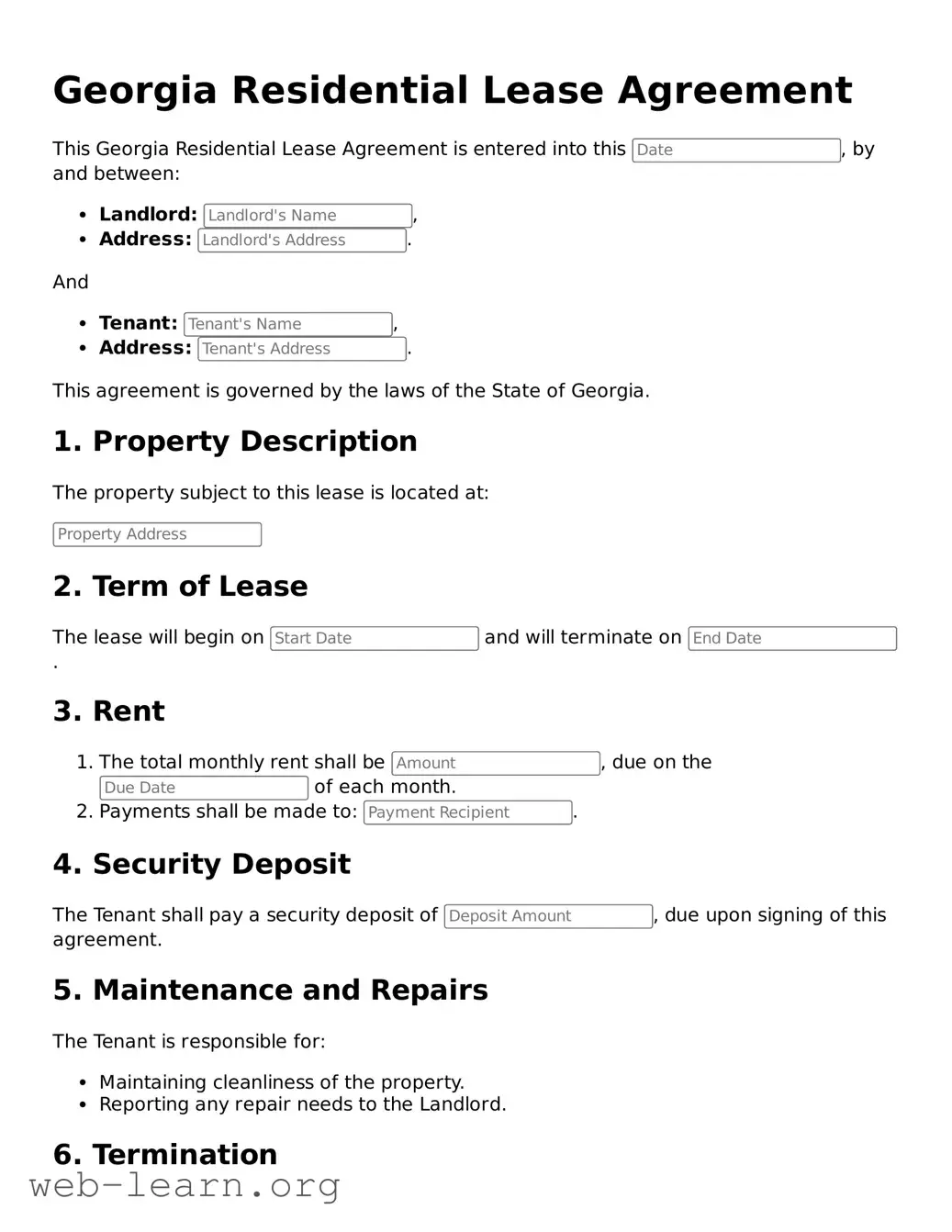Attorney-Approved Residential Lease Agreement Document for the State of Georgia
A Georgia Residential Lease Agreement form is a legal document that outlines the terms between a landlord and a tenant for renting a residential property. This agreement defines the rights and responsibilities of both parties, ensuring a clear understanding of the rental arrangement. Knowing the components of this form is essential for a successful landlord-tenant relationship.
